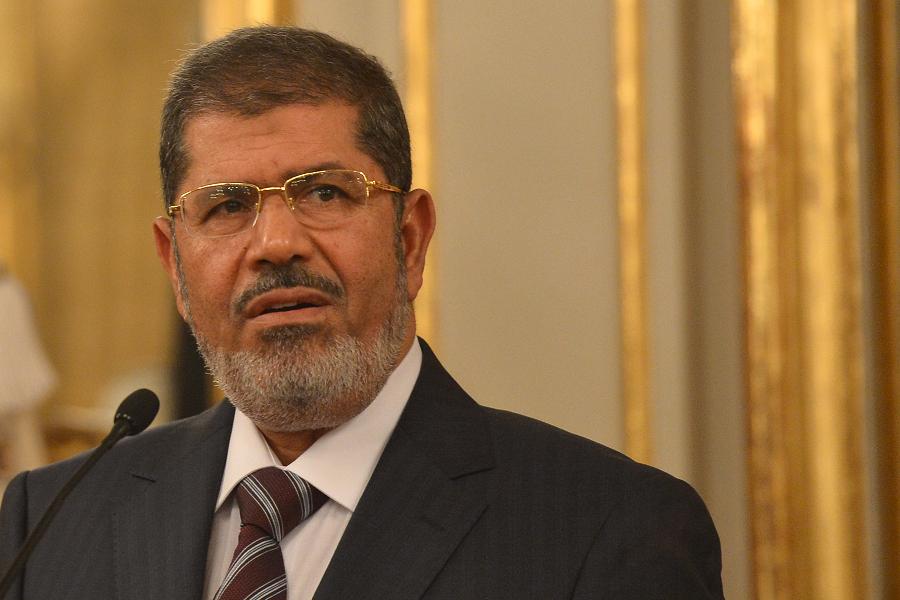Egyptians hunt cheap fuel as Mursi seeks to end shortage

The women squeezed together in an open truck as it left a Cairo warehouse, each clinging to a canister of subsidized cooking gas. Dozens more waited in line.
For many Egyptians it's becoming increasingly difficult to buy a basic necessity of daily life. While officially subsidized butane gas should be available at 2.5 pounds ($0.41) a canister, it's hard to find. The black market price can be about 30 times as much.
"There is a crisis on the streets," said Sayyed Mohammady, 50, as he waited to buy. Also standing in line are fuel producers: Dana Petroleum, the Britain-based natural gas company, said last month that it's owed tens of millions of dollars in arrears.
Angry consumers and unhappy suppliers give momentum to a growing consensus that Egypt, with the Middle East's biggest budget deficit, can no longer afford its subsidy system. That poses a dilemma for President Mohamed Mursi, the country's first popularly elected leader, who has said change is needed, yet needs to avoid stoking the unrest that deterred predecessors like the deposed Hosni Mubarak.
Energy subsidies have become an economic issue as the costs have spiraled to consume 20 percent of government spending in the year to June.
"If the subsidy situation is not dealt with in a dramatic fashion, the budget deficit will be completely unsustainable," Hisham El-Khazindar, co-founder and managing director of Citadel Capital SAE, told a conference in Dubai on Oct. 15. The Cairo- based private equity firm has $9.5 billion in investments and is building a refinery in Egypt. "Liberalizing the energy sector is a key issue," he said.
The government says it's planning change as it seeks to convince the International Monetary Fund to shore up public finances with a $4.8 billion loan. That may mean selling lower volumes of subsidized cooking gas and raising prices for premium fuels, which are cheaper in Egypt, a fuel importer, than in Organization of the Petroleum Exporting Countries members like Nigeria, the United Arab Emirates and Iran. Small-scale cuts may start in this fiscal year, Fitch Ratings said this month.
Mursi, an Islamist elected in June, is treading carefully, emphasizing energy-related corruption to mobilize support for his fuel-price plans. He told an Oct. 6 Cairo rally that authorities seized 23 million tons of black-market diesel in August and September alone.
The government may ration families to two cooking-gas canisters a month, the independent Al-Shorouk newspaper reported Oct. 14, citing Oil Minister Osama Kamal. Those wanting more would pay a "partially subsidized rate," he said.
The proposed limit is already unsettling Mohammady and others waiting in line.
"We're a family of five and we use the gas for baking and water," said Manal Fathalla, 29. Those who need the gas most "will have to buy the rest from the free market," paying 70 pounds a canister, said Essam Hosny, 42.
Their skepticism of government promises that the poor will be protected is a legacy of decades of mistrust. Since change could cost Mursi's Muslim Brotherhood votes in parliamentary elections, his hand may be tied until after the election, said Amr Adly of the Egyptian Initiative for Personal Rights, a Cairo-based non-governmental organization. The vote is due after a referendum on a new constitution, which is still being drafted.
"It needs a political decision and someone to take ownership of the political cost," Adly said during a public debate on the subject last week. He urged Mursi to follow the examples of Iran and Indonesia on how to overhaul energy subsidies.
Iran spent two years on public debates and awareness campaigns before it started to eliminate as much as $60 billion in subsidies, to ensure the cuts wouldn't spark unrest. The Islamic republic won rare praise from the IMF for its "long and careful preparations to ensure the success of the reform and its support by the public."
Egypt may need to act more quickly, as declining tourism revenue and foreign-currency inflows leave the government struggling to pay for fuel imports. Foreign reserves shrank by more than half after the revolt.
Citadel is building a $3.7 billion refinery, which El- Khazindar said will save the cost of fuel transport and import insurance. The company's shares have risen 61 percent for the year, beating the Egyptian bourse's EGX30 Benchmark Index, which is up 57 percent in the same period.
The government, which is seeking to capitalize on Africa's third-largest reserves of natural gas, has also hired companies including Citadel's Taqa Arabia unit to switch households and businesses from heavy fuels to natural gas. Taqa Arabia is converting close to 100,000 homes a year to natural gas, Stephen Murphy, a managing director at Citadel, said in an interview in Dubai.
In the meantime, Alaa Demerdash, 45, who works for state-run Telecom Egypt, will keep making trips to buy subsidized gas.
"I came here because I don't have enough money to buy" on the black market, the father of three said. "I have to spend money on schooling and food. Prices have gone up."
Join our commenting forum
Join thought-provoking conversations, follow other Independent readers and see their replies
Comments